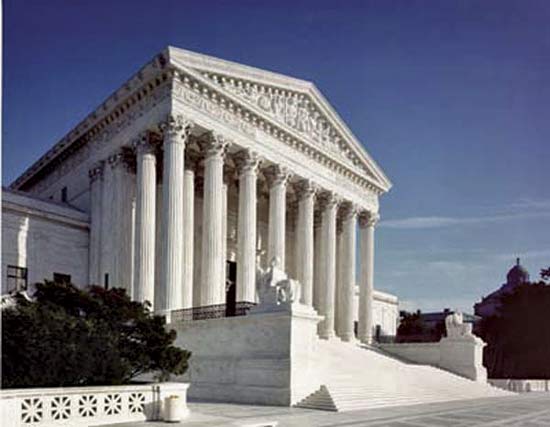The US Supreme Court has agreed to hear a groundbreaking case that could have a significant impact on the prosecution of over 300 January 6 defendants and potentially delay Special Counsel Jack Smith's case against former President Donald Trump. The case concerns a provision of the federal obstruction law, 18 U.S. Code 1512, which the Biden administration has been using to prosecute J6 defendants.
The specific provision states that "whoever corruptly obstructs, influences, or impedes any official proceeding" can be fined or imprisoned for up to 20 years. The government's application of this provision has been largely unprecedented, raising questions about its legality and potential impact on cases related to the January 6 riots at the US Capitol.
Legal experts and defense attorneys have criticized the government's use of the provision, pointing out that similar tactics have never been employed in previous cases involving obstruction of official proceedings. Tom Caso, a Senior Legal Fellow at the Claremont Institute, stated that the government's interpretation of the statute is particularly concerning, as it could potentially open the door for similar charges to be brought against protesters at other events and demonstrations in the future.
If the Supreme Court agrees with the defendant's argument that the provision has been misapplied, it could have far-reaching consequences. Kira Anne West, a defense attorney representing one of the J6 defendants, believes that a ruling in favor of the defendants could potentially "undo a whole bunch of cases" and even impact the sentences of those who have already been convicted.
In addition, the ruling could also have a direct impact on Special Counsel Jack Smith's case against former President Donald Trump. Smith is currently trying to prosecute Trump on charges related to his alleged involvement in the January 6 riots, and this case could potentially delay the trial until after the Supreme Court has ruled.
While it is unclear which way the Supreme Court will rule on the issue, legal experts believe that the decision could go either way. On one hand, the Court may interpret the provision in isolation and uphold the government's position. On the other hand, the Court may decide to take a broader approach and potentially "wipe out" the rest of the language in the statute.
The Supreme Court's decision on this case is not expected until the end of June, and it remains to be seen how it will impact ongoing prosecutions and the trial against former President Trump. However, it is clear that this case has significant implications for the interpretation and application of federal obstruction laws, and it could potentially set a precedent for future cases involving similar charges.

